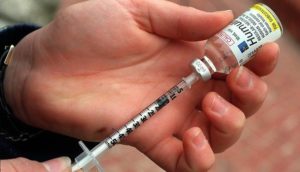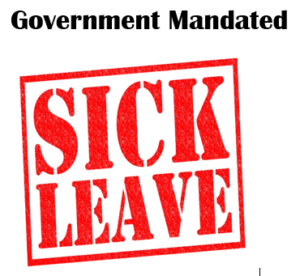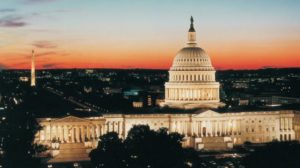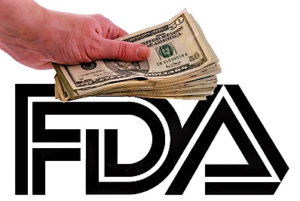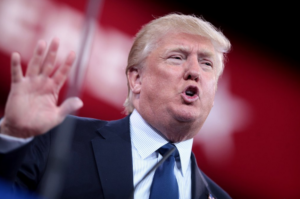- Nevada coalition wants drugmakers to reimburse diabetics (reviewjournal.com)
Nevadans dismayed by soaring drug prices told lawmakers...the state should take unprecedented action to curb costs...A coalition of hotel and casino owners, union leaders and Democratic lawmakers are attempting to mandate pharmaceutical companies refund people for overpriced American insulin...The bill targets diabetes medications...would require drugmakers to reimburse Nevada patients and insurers for what they pay above the highest price in other developed countries for the same prescriptions. Drugmakers would also have to reimburse people if American insulin prices increase more than inflation would suggest they should...Senate Bill 265 would require manufacturers to disclose the costs of all research, materials, manufacturing and administrative expenses that go into producing drugs for diabetics. Additionally, it would force them to notify government health agencies and insurance companies 90 days before they increase prices above the preceding year’s inflation rate...Nevada’s proposal would also have the state license all pharmaceutical sales representatives...Implementing that program in Nevada would cost about $350,000 and upkeep would cost $125,000 annually after that, according to the state Department of Health and Human Services...
- Bill proposes Nevada small businesses offer paid sick leave (reviewjournal.com)
Businesses with 50 or more employees would have to provide paid sick leave under a bill heard...by the Senate Committee on Commerce, Labor and Energy...Under Senate Bill 196 sponsored by Democratic Majority Leader Aaron Ford of Las Vegas, workers would earn one hour of paid leave for every 30 hours worked, and could access the benefit after being on the job 90 days...An employer could limit accrual to 48 hours per year, and cap usage at 24 hours per year. The time could also be used to care for a child, a relative or attend medical appointments...There are exceptions for temporary employees, construction workers, and employees covered under bargaining agreements. It also exempts religious organizations, nonprofits and private membership clubs from compliance...The bill was opposed by the Las Vegas Metro, Henderson and Reno-Sparks chambers of commerce, who complained the requirement would be onerous for small businesses and lead to increased costs and paperwork...Paul Moradkhan of the Las Vegas Metro Chamber of Commerce said many members already offer paid leave and they worry about the “cumulative effect” of bills being considered in the Legislature will have on their businesses.
- Trump’s first budget seeks to slash $6B from NIH, raise FDA user fees (fiercebiotech.com)
President Donald Trump’s first budget will take $5.8 billion away from the National Institutes of Health, around 20% of its total, with FDA user fees also set to rise as biopharmas should "pay for their share."...The budget cut to the NIH...had around $30 billion in funds last year...The NIH...got a funding boost just last year when the 21st Century Cures Act was passed, a law that allowed the Institute an extra $4.8 billion in funding over the next decade...There was no direct mention of FDA cuts, but use fees are set to potentially double..Recalibrates Food and Drug Administration medical product user fees to over $2 billion in 2018, approximately $1 billion over the 2017 annualized CR level, and replaces the need for new budget authority to cover pre-market review costs. To complement the increase in medical product user fees, the Budget includes a package of administrative actions designed to achieve regulatory efficiency and speed the development of safe and effective medical products...
- Botox bill draws fierce protest in Nevada Legislature (reviewjournal.com)
The Nevada Senate Health and Human Services Committee heard a bill Wednesday that aims to restrict which medical professionals can administer Botox...The bill, sponsored by State Sen. Joe Hardy...would bar dental hygienists, medical assistants and aestheticians from administering botulinum toxin...one of the biggest reasons for restricting who can administer the powerful toxin is the lack of training some have in spotting infections...The bill was fiercely opposed by dental hygienists...it was unfair to categorize dental hygienists with the other professions included in the bill, claiming they have extensive training in anatomy around the head and neck...No states allow dental hygienists to administer Botox...
- Failure to Reauthorize User Fee Programs Would Result in About 3,000 FDA Layoffs (raps.org)
Representatives from the biotechnology, medical device and generic drug industries told members of the Senate Committee on Health, Education, Labor & Pensions...that if the five-year user fee programs are not reauthorized, the US Food and Drug Administration would likely see more than 3,000 job cuts...Those layoffs...would significantly curtail new medical product approvals for pharmaceutical, biotech and medical device companies and likely delay research...Senators on both sides of the aisle also criticized Trump’s budget proposal on Tuesday, which would cut billions from the National Institutes of Health and replace congressional appropriations at FDA with more user fees...Representatives from industry groups BIO, AdvaMed and AAM reiterated to the committee what FDA officials told the House Energy & Commerce Committee late last month: that a failure to act on the already-agreed-to reauthorizations would be devastating...
- FDA fees for product review would more than double under Trump budget (reuters.com)
The cost to healthcare companies for U.S. regulatory review of their products, including drugs and medical devices, would more than double under the Trump administration's proposed 2018 budget…over $2 billion in fees to be collected by the U.S. Food and Drug Administration from industry, twice as much as in 2017...it also offered measures that would help speed up the approval process for new drugs and other products...The FDA has been charging companies to review their products since 1992. Most of the user fees collected are for prescription drugs - around $866 million estimated in 2017 - and generic drugs - around $324 million...The budget does not say if the fee increases would be evenly spread or directed in a particular area. The budget did not provide specifics on what measures to speed up approvals might include...
- NCPA Asks U.S. Senate and House Leadership to Hold Hearings on Pharmacy DIR Fees Bills (ncpanet.org)
The National Community Pharmacists Association recently requested Congressional hearings on legislation, the Improving Transparency and Accuracy in Medicare Part D Spending Act, that would stop the unfair practice of pharmacy direct and indirect remuneration (DIR) fees being applied retroactively under Medicare Part D...Retroactive pharmacy DIR fees are creating a system of winners and losers...While pharmacy benefit managers profit, the unpredictable timing and amount of these clawbacks are wreaking financial havoc on pharmacies, seniors, and taxpayers...By requiring PBMs to divulge the costs of prescription drugs for Medicare beneficiaries at the point of sale, these bills fix a problem even the Centers for Medicare & Medicaid Services acknowledges has contributed to rising costs in Medicare Part D.
- DIR fees are pushing seniors into the donut hole coverage phase faster, where seniors absorb all of the costs for their prescriptions;
- DIR fees are also pushing seniors into the ensuing catastrophic coverage phase faster, where the government's costs have risen from $10 billion in 2010 to $33 billion in 2015;
- In both of those instances, the PBMs' co-pay burden disappears, which is not the case in the initial phase of coverage;
- Independent community pharmacies' ability to plan in advance is being undermined by how PBMs currently apply DIR fees, threatening patient access to these pharmacies, especially in underserved communities; and
- All of this is occurring while PBMs continue to operate in a non-transparent manner when it comes to DIR fees.
- Arizona Enacts Law: Pharmaceutical Companies to Legally Communicate Off-Label Treatment to Medical Professionals (policymed.com)
...pharmaceutical companies are not permitted to discuss off-label, legal, alternative uses for an approved drug with physicians and other healthcare professionals as regulated by the FDA. However, a bill in Arizona, HB 2382 that passed unanimously (The Free Speech in Medicine Act) has changed that...Governor Doug Ducey signed the bill into law, lifting the aforementioned off-label promotion restriction and allowing drug companies to communicate with doctors and other healthcare providers about safe and effective alternative uses for approved prescription drugs...The law...safeguards the free speech rights of pharmaceutical industry members to share truthful research and information about FDA-approved medicines...HB 2382...only protects the sharing of information that is "not misleading, not contrary to fact, and consistent with generally accepted scientific principles;" and it only applies to communication between pharmaceutical manufacturers and licensed healthcare professionals. The bill does not permit pharmaceutical manufacturers to advertise off-label uses directly to the public...Since Arizona enacted this protection for industry, it is likely to expand options in doctors’ toolkits, enhance patient autonomy, and increase access to healthcare. It will be interesting to see if any other states will follow suit and implement similar laws...
- Heads up, pharma. Trump’s pushing GOP to put ‘competitive bidding’ on drugs in healthcare bill (fiercepharma.com)
How would a "competitive bidding process" for drugs work? We may soon find out, if President Donald Trump gets his way with the Republican healthcare bill...Trump assured supporters at a...rally that drug prices are still a top priority for him…he's working quickly to get a drug-bidding measure into the current repeal-and-replace bill...Pushing for more competition in pharma isn’t an unfamiliar refrain from the president, who highlighted his desire for bidding during an infamous pre-inauguration press conference...Trump famously said pharma is "getting away with murder."...Trump...continues to maintain that drug prices are way too high. And he often leaves industry watchers clamoring for details about proposals to bolster competition—competitive bidding included...Trump selected Scott Gottlieb to lead the FDA, who could move to boost competition by enacting changes at the agency to speed new products to market...It remains to be seen what kind of proposals might emerge, but Trump himself favors Medicare price negotiations…
- Lawmakers Introduce Prescription Drug Importation Bill to Ease High Costs (pharmacytimes.com)
Senators Bernie Sanders, Cory Booker, and Bob Casey introduced a new bill this past week that would allow the importation of prescription medications from licensed Canadian pharmacies. The legislation, named the Affordable and Safe Prescription Drug Importation Act, would permit the United States to import medications from Canada, where drug spending is significantly lower…The bill outlines importation provisions including safeguards and consumer protections, such as FDA certification of foreign sellers, a clear definition of what drugs may be imported, and supply chain security requirements. Imported drugs must have the same active ingredient, route of administration, and strength as its US-approved counterpart...Previous importation proposals have been shot down due to safety concerns, but supporters of the new bill note added safety measures…Pharmaceutical Researchers and Manufacturers of America released a statement condemning prescription drug importation, due to the potential of counterfeit drugs entering the United States that could put American patients at risk...Even drugs that supposedly come from Canada are frequently not made or processed there, but actually come from counties with lax regulatory systems.

